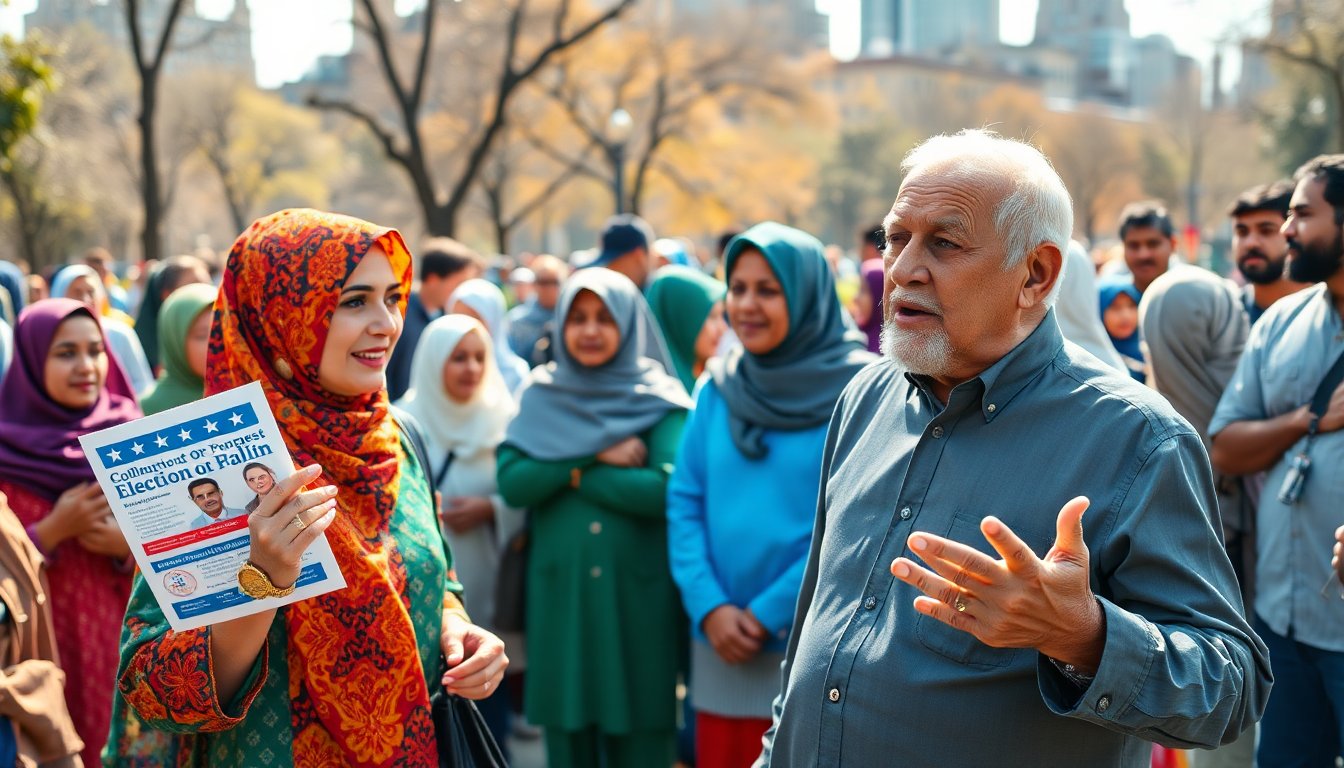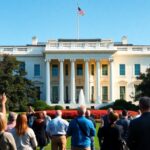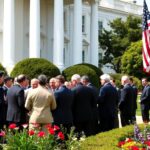Table of Contents
Muslim voters show strong support for Democrats in recent elections
In the recent elections across several states in the United States, Muslim voters displayed significant engagement, favoring Democratic candidates. A survey by the Council on American-Islamic Relations (CAIR) indicated that an impressive 97 percent of the Muslim electorate in New York voted for the newly elected mayor, Zohran Mamdani, a democratic socialist.
This shift reflects a growing dissatisfaction with the political climate, particularly in reaction to the policies of the previous administration under President Donald Trump.
Muslim voters show strong support for Democrats in Virginia
A recent survey by CAIR highlights substantial backing for Democratic candidates among Muslim voters in Virginia.
Ghazala Hashmi, a notable Muslim American and Democratic member, captured 95 percent of the Muslim vote in her successful bid for lieutenant governor. This victory is historic, as Hashmi becomes the first Muslim and South Asian American to assume such a role in Virginia, a state historically aligned with the Republican Party.
Support for Muslim candidates and beyond
A recent survey reveals that the Muslim community’s backing extends beyond Muslim candidates themselves. Notably, non-Muslim Democratic candidates also received significant support from Muslim voters. In congressional races, Virginia congresswoman Abigail Spanberger and New Jersey’s Mikie Sherrill each captured approximately 85 percent of the Muslim vote.
Furthermore, California’s Proposition 50, which aimed to create a congressional map advantageous to Democrats, garnered strong approval, with 90 percent of Muslim voters in favor.
Political engagement and challenges ahead
A recent survey by CAIR, which included interviews with 1,626 self-identified Muslim voters, revealed a notable increase in voter turnout among the Muslim community.
The organization expressed optimism about these findings, indicating that they represent a positive trend of American Muslims actively participating in the democratic process. CAIR highlighted the significance of civic engagement, asserting that these results not only respond to the current political climate but also demonstrate a commitment to combating anti-Muslim bigotry.
Rebuilding trust in the Democratic Party
The recent shift in support among Muslim voters is significant. Previously, many in this community distanced themselves from the Democratic Party during the last presidential election. Their discontent stemmed from President Joe Biden’s consistent backing of Israel amidst ongoing conflicts in Gaza. However, the latest elections suggest a revival of trust as the Democratic Party seeks to reconnect with this crucial voter group.
Looking ahead: The future of Muslim political representation
The Council on American-Islamic Relations (CAIR) reports that 76 Muslim candidates participated in the recent elections, with 38 achieving victories. This increase in representation is particularly notable in Michigan, where cities such as Hamtramck, Dearborn, and Dearborn Heights elected Muslim mayors. These developments further establish the political presence of Muslims in the region. As more Muslim candidates, including Abdul el-Sayed, pursue significant positions such as a US Senate seat in Michigan, the American political landscape is expected to undergo substantial change.
Muslim voters poised to influence 2026 midterm elections
As the nation prepares for the upcoming 2026 midterm elections, the participation of Muslim voters is expected to be a crucial element in shaping the balance of power in Congress. Recent electoral trends indicate a shifting political landscape, underscoring a community that is increasingly engaged in advocating for its interests and challenging established norms.





